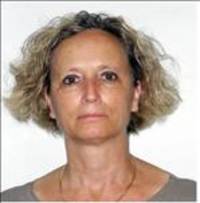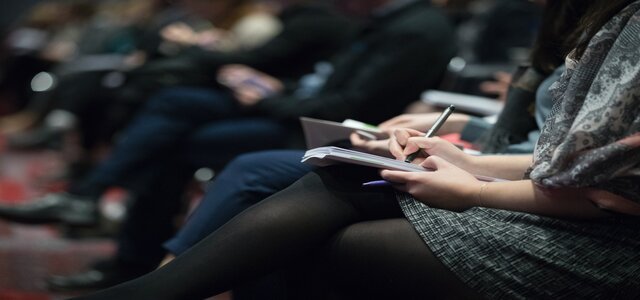16
Aug 2022
Wexner Women’s Forum as a Multigenerational Arena
WIF Alum Shlomit Doten Gissin (Class 12)
The Genesis of the Forum
In 1997, upon returning to Israel after completing her Wexner Israel Fellowship (WIF) studies at Harvard University, Alona Lifshitz (WIF 7) announced the foundation of the Wexner Israel Alumnae Forum. Alona relates that it was during her year at Harvard, informed by courses on feminism and in partnership with her female classmates, that the Women’s Forum was initially conceived. Upon her return to Israel, she invited other Fellowship program alumnae and female partners of the program’s alumni as well as women beyond the Wexner network, to join the Forum.
But it was in the summer of 2002 when the Forum in its current format really launched. Alona had joined a group of team leaders in a meeting with Professor Marshall Ganz (the great civil rights activist and the Rita T. Hauser Senior Lecturer in Leadership, Organizing, and Civil Society at the Kennedy School of Government/KSG at Harvard), who was visiting Israel for the WIF Alumni summer conference. The conference drew from his Harvard course, that tasked students with planning a forum that would realize their vision.
Professor Ganz was enthusiastic about Alona’s idea of creating a women’s forum that would go beyond simply empowering women, to empowering women specifically from various social sectors in the civil service. The main objective of this initiative was to bring together a group of women and provide them with an environment for an open dialogue about their work as professionals.
With Ganz’s encouragement, Alona decided to limit membership to WIF alumnae and female partners of the program’s alumni. By Autumn 2002, the Forum had 45 members who were alumnae of Wexner Israel Fellowship Program. That same year, I, myself had returned from the Harvard program as a Wexner alumna and gladly joined the Forum.
Seven years ago, when the Wexner Senior Leaders Program for Public Service (WSL) was established alongside the Fellowship program, the Women’s Forum decided to open its doors to the new program’s alumnae and invite them to join the group. The Forum's WhatsApp group now has over 100 active members.
The Forum Today: Intimate, Courageous, Transformative
The Forum is diverse in terms of the generations it represents, with members ranging from young alumnae in their late 30s who have returned to Israel just a few years ago, veteran alumnae in their 60s or 70s who have long retired from public service (although many continue their activities for the benefit of the public after retirement), and a middle generation of women in their 40s and 50s who currently serve in senior positions in Israel’s public service. The Forum's activity as a peer consultation group allows the three generations to enjoy an intergenerational advantage. The veteran alumnae support their colleagues who face challenges in their current professional stages and positions as public service workers.
The Forum meetings are usually held on Friday mornings every six weeks in the format of brunches, at the residence of one of the members. These home meetings provide a glimpse into the personal world of the host, create a conducive atmosphere for introductions over a plate of refreshments, and foster connection among all the women present – whether they are veteran members of the Forum or have just joined it and are participating in this activity for the first time.
The meetings are moderated by the group leader in accordance with these clear and agreed-upon rules, which are reiterated at the start of every meeting as follows:
- Each session has a predetermined topic, with members bearing a clear preference for engaging in personal consultations, which are coordinated with the group leader. Although consultations are the most common type of meeting, meetings have also engaged outside speakers.
- While the home-hosted brunch gathering is the opening portion of a meeting, the core motivation for these meetings are the consultation sessions or discussions of a particular issue, for which two hours are set aside as dedicated, protected time.
- Everything said in the room remains in the room and is recorded in writing solely for the benefit of the member who is receiving the consultation.
- The interaction is personal and respectful.
- Members are under no obligation to speak, but each participant is given the opportunity to ask questions and express her opinion.
- Issues raised by the member who is consulting or by other members, are put on record in a notepad, which is then given to the presenter for her personal use.
- Each meeting follows an accepted 4-part protocol.
Over the years, dozens of consultation meetings have been held regarding issues in the professional lives of the members, such as around significant career changes, often addressing a particular crisis or turning point that requires difficult decisions. Many have returned to the Forum for further consultations over the years. In conversations with members who have consulted with the Forum over the years, it is clear that although the consultation sessions are not easy, they yield great value.
The meeting’s speaker is expected to present the issue succinctly and clearly and must be willing to be vulnerable and share both weaknesses and strengths in order to allow the other participants to offer the most attuned advice. Furthermore, the speaker must show restraint and listen to the opinions voiced by the others, without responding immediately.
The consultation sessions place a magnifying glass on the presenter – a complex situation in itself which centers around a difficult problem rather than on victories to be shared. In situations like these, work avoidance is an easy option, however, it is the Forum’s responsibility to remind the speaker that facilitating maximum growth and progress can only be achieved by viewing the other side of the equation in a clear and lucid manner.
The sessions often pave new channels of professional collaborations, which previously seemed unviable. The members who are not presenting also report their experience in these sessions as meaningful. Even though the topic at hand may not relate to them directly, the process allows them to apply the insights they’ve gained in their personal lives. The outpouring of moving messages on the Forum’s WhatsApp group after each consultation session is testimony to this.
Overall, the process fosters a sense of solidarity and intimacy among the Forum’s members, far beyond the professional consultancy interaction. It is an experience that entails openness, exposure, and vulnerability, but also produces a narrative that reminds each member why she is part of the civil service and the Wexner alumnae community.
The thoughts and insights that arise in the discussions become incorporated in the life experience of the members for years to come. In fact, through them, the grandmothers, mothers, and granddaughters of Israel’s civil service find their place and voice, making powerful contributions to the alumnae community.

Featured photo by The Climate Reality Project on Unsplash
Get To Know The Author
WIF Alum Shlomit Doten Gissin (Class 12) is a retired urban planner who most recently served as Head of Environment and Sustainability for Ariel Sharon Metropolitan Park in Tel Aviv.

